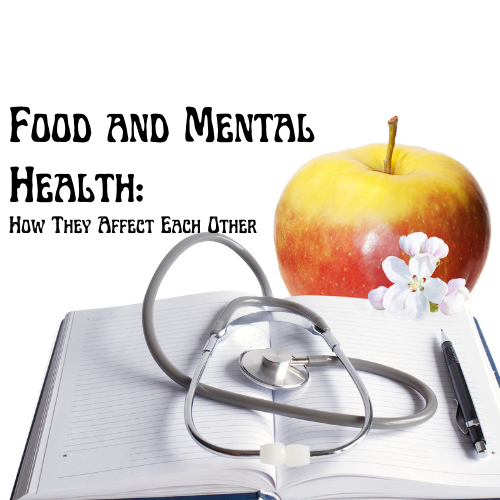
Food and Mental Health: How They Affect Each Other
How does food and mental health affect each other?
Food and mental health have a strong correlation. And for decades we’ve heard the old adage “you are what you eat” but to what extent is that true? We all know that diet certainly affects our physical health but what is the impact on our mental health?
Food and mental health
When you eat healthy foods you have much less mood changes or fluctuations. In addition, you’re simply overall happier and have a better ability to focus. There is also a link to good gut biome/bacteria to prevent or reduce depression. When you have a healthy gut it affects every part of your body, especially your brain.
Food to avoid
Sugar
Avoid sugar whenever possible, especially processed or artificial sweeteners. It causes a temporary spike in neurotransmitters like dopamine which then turns into a sugar crash. Hence, the sugar crash creates a poor mood. It also is unhealthy for the bacteria in your intestine and causes inflammation.
Caffeine
If possible, avoid or limit beverages with caffeine. They can interfere with sleep and heighten anxiety.
Fast food
The link between refined food and depression isn’t concrete however a diet that is high in refined grains and processed, fried foods contributes to a higher risk for developing depression.
Saturated fats
Avoid food with trans fatty acids. These can causes inflammation and worsen depression symptoms. In addition, these foods promote weight gain, poor cardiovascular health which affects your mood.
Healthy foods
Fiber-rich foods
Plant-based foods have a lot of fiber and are the complex carbohydrates (unlike simple carbohydrates in processed flour products) your body needs for fuel. These help your body absorb glucose slower to avoid sugar rushes and the crash of energy. Examples of great fiber-filled foods are fresh fruits, vegetables and whole grains and beans or legumes.
Antioxidant-filled foods
Antioxidants fight inflammation. Foods high in these are fresh berries, leafy green vegetables like kale and spinach, turmeric and great in combination with Omega-3 fatty acid filled foods like salmon and chia seeds.
Magnesium
This mineral helps with nerves and muscles to a healthy heartbeat. In addition in helps prevent mineral deficiency which hurts the healthy bacteria levels in your gut which can cause symptoms of depression or anxiety. You can take it as a supplement or obtain it by eating cacao nibs, cashews, spinach, bananas or cashews and beans.
What if you still experience mental health symptoms?
Lifeline Connections commits to long-term wellness for our patients. For example, we offer an integrated, holistic approach that includes substance use disorder treatment, therapy and case management. For example, our doctors specialize in the treatment of co-occurring mental health and substance use disorders, working to solve ones that have a compounding effect. Above all contact us and reclaim your life.
Contact a doctor for a referral or find a therapist. Additionally, they can work to design a custom plan for wellness. Further, secure treatment is over the phone or computer with telehealth, providing coping skills for grief, loss, depression and anxiety. Moreover, they will work with you one-on-one to get you feeling better.
